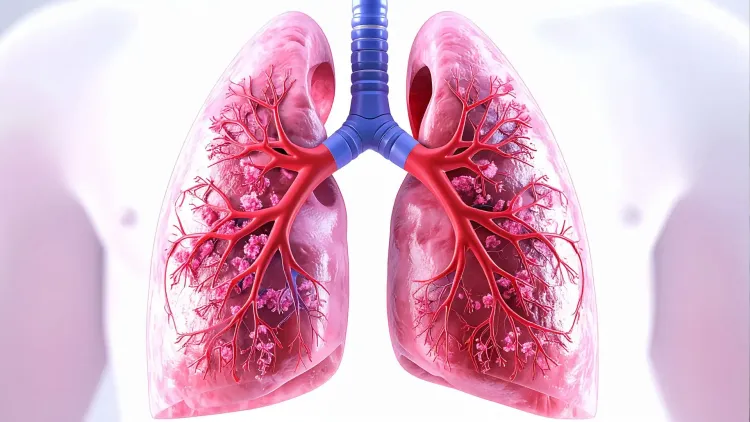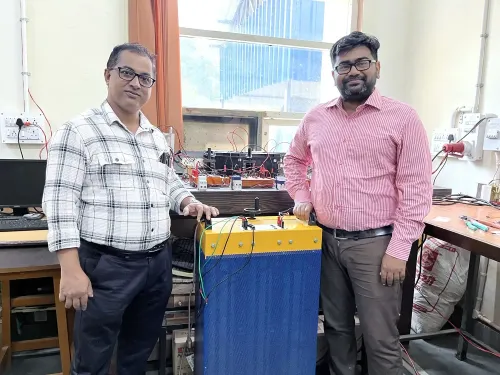Could an Antibody Drug Revolutionize Treatment for Lung Cancer?

Synopsis
Key Takeaways
- SHR-4849 is being trialed as a targeted therapy for relapsed small-cell lung cancer.
- The Phase I trial showed promising early results with a 59.5% objective response rate.
- Common side effects were manageable and did not lead to serious complications.
- The drug targets DLL3 which is highly expressed in SCLC.
- Further studies are ongoing to establish the recommended dose for future trials.
New Delhi, Sep 8 (NationPress) A group of researchers from China has conducted a pioneering trial on an antibody medication that could enhance treatment options for individuals suffering from relapsed small-cell lung cancer (SCLC).
SCLC is characterized as a rapidly progressing and highly aggressive form of lung cancer. The International Agency for Research on Cancer reported that in 2022, 2.48 million individuals were diagnosed with lung cancer, with small-cell lung cancer accounting for 11.5% of diagnoses in men and 9.7% in women. This type of cancer offers limited treatment possibilities and is associated with a grim prognosis.
The Phase I trial of SHR-4849 (IDE849), a DLL3-directed antibody-drug conjugate (ADC), showed acceptable safety profiles and early indications of anti-tumor efficacy in patients experiencing relapsed SCLC.
SHR-4849 is composed of a humanized anti-DLL3 IgG1 monoclonal antibody connected to a DNA topoisomerase I inhibitor through a cleavable linker.
Due to the elevated levels of DLL3 expression in SCLC, this medication is being researched as a targeted therapy for patients with few treatment choices.
Dr. Linlin Wang and his team from the Affiliated Cancer Hospital of Shandong First Medical University in China treated 54 patients across five dosage levels, ranging from 0.8 to 4.2 mg/kg.
The Objective Response Rate (ORR) among 42 evaluable SCLC patients was 59.5%, with a Disease Control Rate (DCR) of 90.5%. The ORR increased to 69.2% among those with a minimum of 12 weeks follow-up, reaching 77.8% at the 2.4 mg/kg expansion dose.
The most frequently observed treatment-related side effects included reduced white blood cell count, anemia, neutropenia, and nausea. Notably, no treatment-related side effects resulted in dose discontinuation or fatalities.
This study employed a dose-escalation and expansion methodology, revealing initial effectiveness across various dose levels with a favorable safety profile.
No dose-limiting toxicities were found at doses under 4.2 mg/kg, and plasma exposure of the free toxin remained low throughout.
Ongoing dose expansion aims to establish the recommended Phase II dose (RP2D). Further clinical development will evaluate SHR-4849's potential as a treatment for DLL3-expressing SCLC, Dr. Wang stated.
"These promising initial results advocate for further exploration of SHR-4849 as a possible treatment for patients with DLL3-positive relapsed SCLC," Wang expressed.
The findings were shared at the International Association for the Study of Lung Cancer 2025 World Conference on Lung Cancer (WCLC).









